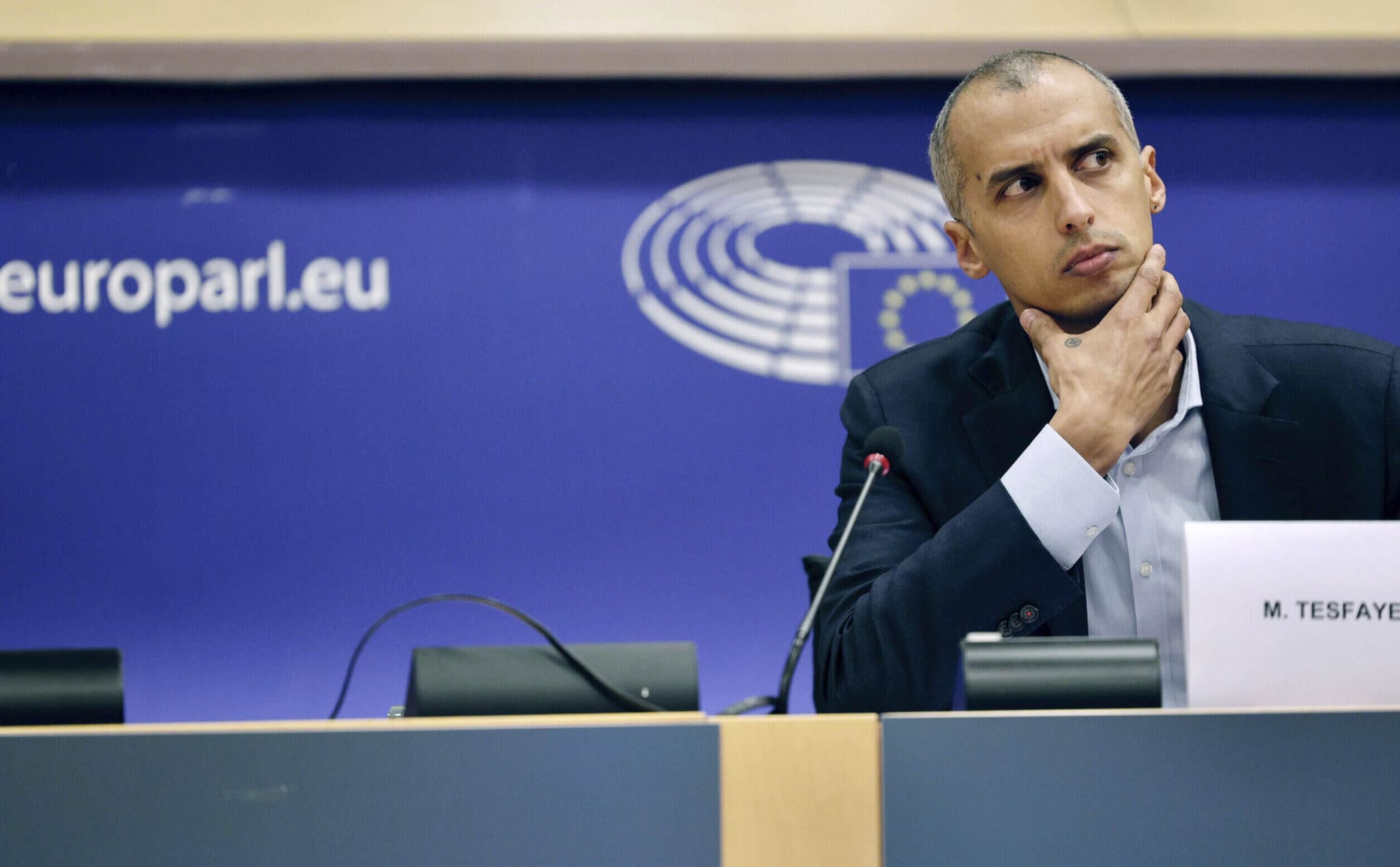Danish Integration Minister Mattias Tesfaye, of the left-wing Social Democrats and the child of an Egyptian migrant himself, is defending the strict immigration policy of his country, and believes there are leftist reasons for doing so, including protecting workers and lower-class citizens from wage competition and integration problems. The minister made the remarks in an interview with the Neue Zürcher Zeitung.
Denmark’s policy on immigration is much discussed in the German media, mostly in a negative light, and the Swiss newspaper began the interview asking a question about German press coverage: “Maybe you don’t know it, but for many German-speaking media and left-wing politicians believe you are evil personified: a social democrat with a migration background who criticizes Islam and wants to force poorly integrated foreigners to do dirty jobs. How do you deal with being called a traitor and a racist by your own comrades?”
He responded that he believes in immigration restriction from a left-wing perspective:
“I studied Danish migration history. And it’s obvious to anyone who’s interested that the left and the unions were very skeptical about migration in the 1960s because of the competition in the labor market. It was the political right that wanted to open the borders for foreign workers at the time. In the 1980s and 1990s things were reversed: now it was the left that wanted to open the borders, while the right wanted to close them.
“If you look at the historical background, it’s perfectly normal for left-wing politicians like me not to be against migration, but to insist that it is under control. If it isn’t – and it wasn’t from the 1980s onwards – low-income and ill-educated people pay the highest price for integration that doesn’t work. It’s not the rich neighborhoods that have to integrate the most children. Rather, areas where the classic social democratic voters and trade unionists live have to deal with the biggest problems.”
The immigration minster says that his country’s zero asylum policy has paid off, especially in comparison to more migrant-friendly countries like Sweden, which has seen a dramatic increase in crime and murders, with data showing that much of the increase in crime is driven by immigration.
[pp id=21445]
“If you look at the numbers in Denmark, the crime rate is going down, while education and employment are going up. The number of areas classified as ‘ghettos’ is falling dramatically. I am absolutely sure that if we had the same immigration numbers as our neighbors, we would have the same integration problems,” he said.
Middle East and Africa singled out
He also singled out immigration from Africa and the Middle East as particular problems for Denmark.
“I don’t care if someone is from the Philippines or Iraq. I judge a person by what they are and what they do. And what he or she contributes to Danish society. But Danish society has problems with too much migration from the Middle East, and as minister, I have to consider the consequences of this migration. One of them is that it is a big economic challenge.
If we analyze which groups of migrants contribute to a sustainable welfare state, we see that we have no problems with people from Thailand, China or India. They are net contributors to the Danish economy. And that’s just the economic side of the stats.
Tesafaye also says that while the he vast majority of Muslims are not criminals, it goes beyond just crime. He also points to a “lack of cultural integration.” He says this has to do with women’s rights, discrimination against other religious groups outside of Islam, and a dramatic rise in anti-Semitism.
[pp id=16263]
“In 2015 there were Islamist acts of terrorism in Denmark. A Jewish security guard was killed in front of a synagogue. If you ask the average Dane, they’ll probably answer that [anti-Semitism] is no big deal. But if you ask the Jewish communities in Copenhagen or even in Aarhus, they will give you a different answer. The Jewish schools, but also the communities, are confronted with anti-Semitism to a degree that did not exist before. And that’s because of migration.” he said.
He also underlined that when his father came to the country in the 1970s, less than 1 percent of the Danish population was made up of migrants. Now, it is 10 percent, which he says presents a modern problem that simply was not there before.
“Half of the asylum seekers in Europe are not vulnerable in any way”
The current European asylum system is part of the problem, not the solution, Tesfaye told the Neue Zürcher Zeitung.
“Ten years ago, according to the United Nations, there were around 40 million refugees worldwide. Now, it is more than 80 million. There is no connection between the number of asylum seekers in Europe and the number of vulnerable refugees in the world,” said the Danish minister.
Why did the Danish Social Democrats return to a view critical of migration from the 2000s onwards?
Anyone who wants to help refugees has to “settle them in Europe and Denmark with the help of UN programs. We have to invest a lot more money in international programs,” emphasized the son of an Egyptian refugee.
“Half of the asylum seekers in Europe are not vulnerable in any way, and the majority are young men,” he added.
[pp id=16490]
If their asylum decisions were rejected, it would cause “a lot of problems and costs,” he said.
“Every time someone applies for the right to asylum, that is part of the problem. Refugees should be selected based on humanitarian criteria. In Denmark, we are currently accepting people from Congo and Burundi. They come from reception centers in Rwanda and are sexual minorities or women with children.”
Other European countries such as Germany or Sweden should also change their legislation so that asylum applications in third countries can be examined. Tesfaye also clarified that the aim of the Danish government applies to asylum seekers, not refugees.
“I know that the German press pretends it is the same thing, but it is not. We strive for an international asylum system that helps people living near conflict zones. In Afghanistan, for example, people need money to get through the winter.”
At the same time, however, refugees would also have to be settled in Europe.
“But we want to make sure that the people who end up in Copenhagen are actually refugees who have been selected by the UN, and not by people smugglers.”
If Denmark analyzes which groups of migrants contribute to a sustainable welfare state, the country could accept people from Thailand, China, or India.
In addition to economic integration, cultural integration is also important, according to Tesfay.
The Danish government’s migration policy is considered restrictive compared to other EU countries. For example, the Scandinavian country announced in September that social benefits for immigrants would in the future be linked to an obligation to work.






